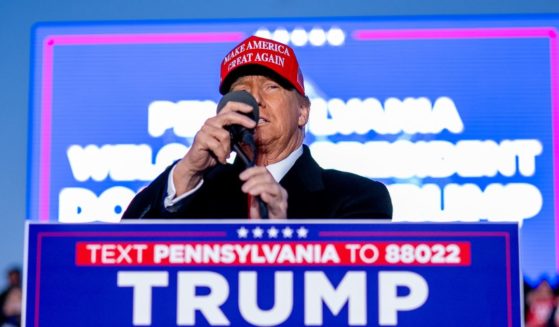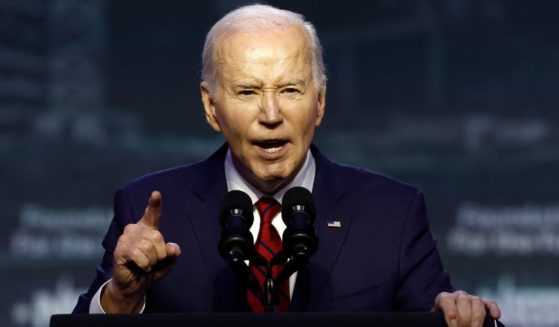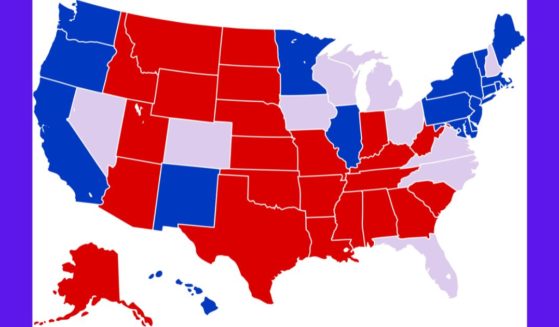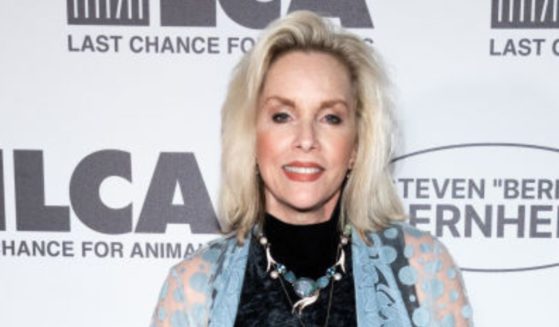Mayor Bowser Calls for Legislation for DC Statehood on POTUS' Desk in First 100 Days
Washington Mayor Muriel Bowser called for the new Congress to put District of Columbia statehood legislation on the president’s desk in the first 100 days of its session.
However, such a move by the Democrat-controlled Congress — assuming the two Senate runoff races in Georgia are certified — would seemingly be in direct violation of the Constitution and surely be challenged in court.
Bowser congratulated the Georgia Democrats, Jon Ossoff and the Rev. Raphael Warnock, and labeled President Donald Trump as “unhinged” as she began a news conference Thursday mainly focused on the District’s response to the rioters who broke into the U.S. Capitol the previous day.
The mayor then listed a “few priorities” she said were important to D.C. for the new Congress.
“First, we must get statehood on the president’s desk within the first 100 days of the 117th Congress,” she said.
We must get DC statehood on the President’s desk within the first 100 days of the 117th Congress. pic.twitter.com/APrxMFGLKA
— Mayor Muriel Bowser (@MayorBowser) January 7, 2021
“Congress must immediately transfer command of the District of Columbia National Guard from the president of the United States and put it squarely under the command and the control of the mayor of the District of Columbia,” Bowser added.
I’m upset that 706,000 residents of the District did not have a single vote in Congress yesterday despite the fact that our people were putting their lives on the line to protect our democracy. We should all be upset. #DCStatehood https://t.co/4NYD2tSMJS pic.twitter.com/iUHZMT4cWJ
— Mayor Muriel Bowser (@MayorBowser) January 7, 2021
Let’s take a look at what the Constitution says about the District of Columbia.
Article I, Section 8, Clause 17 reads, in part, “The Congress shall have Power To … exercise exclusive Legislation in all Cases whatsoever, over such District (not exceeding ten Miles square) as may, by Cession of particular States, and the Acceptance of Congress, become the Seat of the Government of the United States.”
In other words, the Founders set up the District as separate and distinct from the states for the purpose of being the seat of the nation’s government.
The federal government was given full authority to “exercise exclusive legislation in all cases whatsoever” in relation to the governing of the location as well, which would be pretty difficult to do if D.C. were to become a state.
In Federalist 43, James Madison, the “father of the Constitution,” explained that the purpose of the federal district for the nation’s capital was partly so it would not be dependent on a local or state government.
“The indispensable necessity of compleat authority at the seat of Government carries its own evidence with it. It is a power exercised by every Legislature of the Union, I might say of the world, by virtue of its general supremacy,” he wrote.
One problem Madison identified is that without the federal district being independent, “the public authority might be insulted and its proceedings interrupted with impunity,” which seems a particularly timely warning in light of Wednesday’s events at the Capitol as well as the demonstrations and riots in D.C. this past summer.
“Nor would it be proper for the places on which the security of the entire Union may depend, to be in any degree dependent on a particular member of it,” Madison wrote.
Lee Casey, in a 2007 piece for The Heritage Foundation, recounted, “Madison’s concerns about insults to the ‘public authority’ were not speculative. In June 1783, several hundred unpaid and angry Continental soldiers had marched on Philadelphia, menacing Congress in Independence Hall itself. Pennsylvania refused all requests for assistance and, after two days, Congress adjourned. Its Members fled into New Jersey.”
Of course, on Wednesday, Washington’s Metropolitan Police Department was on hand, and it should be commended for helping restore order.
Additionally, Casey explained regarding the federal seat: “Because of the District’s unique character as the federal city, neither the Framers nor Congress accorded the inhabitants the right to elect Members of the House of Representatives or the Senate. In exchange, however, the District’s residents received the multifarious benefits of the national capital.”
He went on to note efforts have been made to grant D.C. representation in Congress in more recent times.
Congress passed a proposed constitutional amendment in 1977 to grant the District representation in Congress “as if it were a state,” but the legislation was not ratified by the requisite three-fourths of the states.
Further, the Supreme Court rejected in Adams v. Clinton (2000), the argument that D.C. was entitled to representation without a constitutional amendment.
Only states are entitled to representatives in Congress by the specific language of the Constitution, so short of an amendment that cannot change.
The District of Columbia serves a unique purpose to our nation as the seat of the federal government, and it should not become a state.
Truth and Accuracy
We are committed to truth and accuracy in all of our journalism. Read our editorial standards.












